RIO DE JANEIRO — Inside his church in Brazil’s Paraná state, the Rev. Edison Menezes had just delivered a homily denouncing gun ownership when the parishioner interrupted Mass. Taking his words as a slight against pro-gun President Jair Bolsonaro, she accused the priest of backing the left-wing challenger in Sunday’s election.
Politics
The cannibal vs. the Satanist: Toxic politics is poisoning
|
|
“Is God … in favor of abortion, father? Is he in favor of queer theory?” she demanded, according to a video that has been verified by the church. “You are asking us to vote for Lula!”
Menezes, speaking from the altar of the Our Lady of Light Church, denied campaigning for former president Luiz Inácio Lula da Silva. But the outburst this month neatly captured the unholy state of politics in Brazil, where the most toxic election in modern history has deepened polarization in Latin America’s largest nation.
From the Amazon jungle to the megacities of the southeast, Brazil’s political division is upending churches, making targets of pollsters and igniting feuds between strangers, friends, family, even branches of government, all while pitting region against region and opening fresh rifts over sexuality, religion and race.
In a time of crisis for modern democracy, the outcome here will serve as a gauge of global political winds ahead of the midterm elections in the United States after victories for the extreme right in Italy and Sweden. A Bolsonaro win could entrench an illiberal government in Brazil akin to those of Hungary and Poland. A Lula victory will be seen as an echo of the 2020 race in the United States, where an old lion of the left — Joe Biden — also felled an icon of a transformed right: Donald Trump. Should Lula win, Bolsonaro could follow the example of Trump, his political lodestar, and resist going gently from the presidential palace.
More than anything, however, the Brazilian contest is a sign of a new normal in democratic elections, where debates over budgets and spending have been replaced by bitter culture wars, assaults on electoral systems and skepticism about democracy itself.
In an election seen by both sides as an existential struggle, the campaigns have abandoned any semblance of civility in favor of disinformation and demonization — literally. Bolsonaro and his camp have accused Lula of being a closet communist, and a Satanist who wants to shutter churches and create unisex bathrooms in public schools. One of Lula’s campaign ads, meanwhile, latched on to an old boast — and apparent joke — of Bolsonaro’s to suggest he practices cannibalism. The left here is portraying Bolsonaro as a fascist dictator in the making, and calling his defeat essential to the future of Brazilian democracy. (Each side denies the other’s claims as absurd.)
“It’s the Americanization of Brazilian politics,” said Guilherme Casarões, a political analyst at the Getulio Vargas Foundation in São Paulo. “One of the features of this election is that Bolsonaro has been able … to create a permeant state of cultural war.”
That Brazil is mirroring the United States should come as no surprise. Both are continent-sized New World countries saddled with unresolved issues over race and the legacy of slavery. They share cultural similarities, from rodeos to evangelical voting blocs. Bolsonaro has made no attempt to hide his vocal admiration for — and alliance with — Trump.
The Observatory of Political and Electoral Violence recorded 212 politically motivated attacks, including 21 killings, from July through September, up 110 percent from the previous quarter.
Fears of broader right-wing violence were heightened last week when a Bolsonaro-supporting former congressman fired a rifle and threw grenades at federal police, wounding two, as they sought to take him into custody for violating house arrest.
Bolsonaro denounced the attack on police, but also condemned the case against Roberto Jefferson, who was detained in 2021 as part of a judicial crackdown on misinformation. The consensus among analysts here is that isolated clashes could erupt on or after election day, and larger-scale violence remains possible.
Lula, who served as Brazil’s president from 2003 through 2010, won 48.4 percent of the vote to Bolsonaro’s 43.2 percent among a field of 11 candidates in the first round of the election on Oct. 2. As the top two finishers, they’re heading to the second and final round on Sunday to determine a winner.
Polarization could complicate governing for the next administration, no matter which candidate wins — though it would probably go harder for Lula, given the bloc of radical Bolsonaristas in the Senate. Polls show the widening divide: Lula’s voter rejection rate has grown from 16.2 percent when he first won the presidency in 2002 to 45 percent today, according to the Datafolha polling firm. His conservative opponent in 2002, Jose Serra, had a rejection rate of 14.4 percent; Bolsonaro’s is 50.
Polls that underestimated Bolsonaro’s support in the first round still show Lula ahead in the decisive round on Sunday. But his lead has narrowed significantly.
During a debate last week, Bolsonaro issued what critics decried as a racially charged attack, claiming Lula’s recent visit to a majority-Black favela showed he had close ties to “drug dealers.” Lula performed particularly well in the Brazilian northeast, a part of the country that has proportionally more people of color.
“Lula won in 9 of the 10 states with the highest illiteracy rate,” Bolsonaro doubled down on social media. “Do you know which states? In our Northeast.”
Lula last week lamented the tone of the campaign during a meeting with Catholic representatives.
“This country has always been a happy country, which liked to party, liked soccer, dancing, Carnival,” he said. “I have never seen Brazil taken by such hatred as a part of Brazilian society has today.”
On Oct. 16, a woman interrupted a church service in the southeastern city of Jacareí when the pastor mentioned Marielle Franco, the bisexual Black Rio de Janeiro councilwoman who was assassinated in 2018. “You, sir, will not speak of Marielle Franco inside the house of God. [She was] a leftist … a homosexual who wanted gender ideology inside children’s schools,” the woman said, according to the Brazilian outlet O Globo.
Two days earlier, the Rev. José Fernandes de Oliveira, famous here as a religious singer, announced he would leave social media until after the elections. “They keep saying that I am a bad priest, a communist, and a traitor to Christ because I teach Christian social doctrine,” Fernandes de Oliveira, who goes by Padre Zezinho, wrote on Facebook. “The sad thing is that the offenses are all from radical Catholics who preferred their political party to Catholic catechism.”
Cibele Amaral, a 51-year-old evangelical Christian in Brasília, said she left her church this month after its leader questioned her support for Lula. “She came to me with a speech about Lula bringing communism,” Amaral said. “I told her that was nonsense and … if she continued, I would never speak to her again.”
Not all the antagonism is from the right. In an incident widely reported this week by the Brazilian media, video shared on social media appeared to show a couple jeered out of a São Paulo restaurant by diners chanting that they were “minions of Bolsonaro.” São Paulo police say a Lula supporter stabbed a longtime friend to death this month after the victim called Lula voters “thieves.” In other attacks, Bolsonaro supporters have been accused of killing Lula supporters.
Despite legal warnings and court rulings aimed at curtailing false information around the election, Brazil saw an “explosion” in fake news in the lead-up the first-round vote and after, according to the Rio-based Igarape Institute and its partners. The false or unsupported claims, shared through social media, include allegations that link Lula to organized crime and that say he is “in league with the Devil.”
For the first time in the campaign, the institute noted a considerable output of disinformation from the left, such as doctored images of a Bolsonaro visit to a Masonic Lodge in 2014. The photos showed edited-in posters behind Bolsonaro and Masonic leaders, including one of a pagan figure associated with Satanism.
An analysis of the reach of such posts found the far-right to be the more voracious consumers. YouTube channels on the far right, for instance, posted 99 million views between Sept. 30 and Oct. 7, compared to 28 million views for leftist channels during the same period.
Division and misinformation were factors in Bolsonaro’s rise to power in 2018. But they have worsened, observers say, as politics have grown more tribal. Upping the passion now, Bolsonaro’s path to reelection runs through Lula, who stirs the same kind of antipathy among many on the Brazilian right that Hillary Clinton does among Republicans in the United States.
The air is thick with claims of fraud from an ever more extreme right wing that warns it will see anything other than victory as a stolen election. From the morning of the first round to the next afternoon, the Igarape report cited more than a million items questioning electoral integrity on Brazilian Facebook, Twitter and YouTube.
After the first round, Bolsonaro supporters took aim at pollsters who significantly underestimated his eventual tally. Bolsonaro allies in Congress are now pushing legislation that would make it a crime to publish a poll found to be wrong beyond its margin of error.
The right’s latest line of attack: Unproven claims that radio stations across Brazil violated Brazilian law by giving more airtime to Lula than Bolsonaro — grounds, some close to the president suggested, to postpone Sunday’s vote. Bolsonaro was prepared this week to call for a postponement, the news outlet G1 reported Wednesday, but relented after key military and political figures declined to back his plan.
Nevertheless, officials from the left said they feared Bolsonaro would still try to leverage the claim — already reviewed and dismissed by election authorities — to challenge a Lula victory.
“This appears to be another Hail Mary from the Bolsonaro camp to sow confusion and disorder in the final days of the election,” said Robert Muggah, co-founder of the Igarape Institute.
Brazil’s electoral court this month vested its chief, Supreme Court judge Alexandre de Moraes with authority to remove posts that violate disinformation rules. Bolsonaro’s backers condemned the move as part of an organized campaign by an activist court biased against the president.
Bolsonaro has stocked the prosecutor’s office and police with loyalists, dismissed the coronavirus as a “little cold” and encouraged development in the Amazon.
The right calls Lula a corrupt leftist; he served more than 19 months in jail on corruption and money laundering charges that were later annulled. Supporters see his two terms as a period of social programs that saw the hunger rate sharply decrease.
Should Bolsonaro win, a weakened left could struggle against further steps to erode democratic principles and institutions. In defeat, Bolsonaro could retain significant influence among a core opposition, as Trump has in the United States.
Should Bolsonaro lose, observers say, he could cast doubt on the results, setting up a U.S.-style scenario in which some Brazilians cling to the belief that the new president is illegitimate. Bolsonaro has already falsely claimed that reliable electronic voting machines can be easily tampered with.
“My feeling is that, if he loses, Bolsonaro spreads the great lie, something similar to what Trump has done,” Muggah said. “One can imagine an insurrection-style event.”
Paulina Villegas contributed to this report.
Politics
Trump faces political risks as trial begins – NBC News
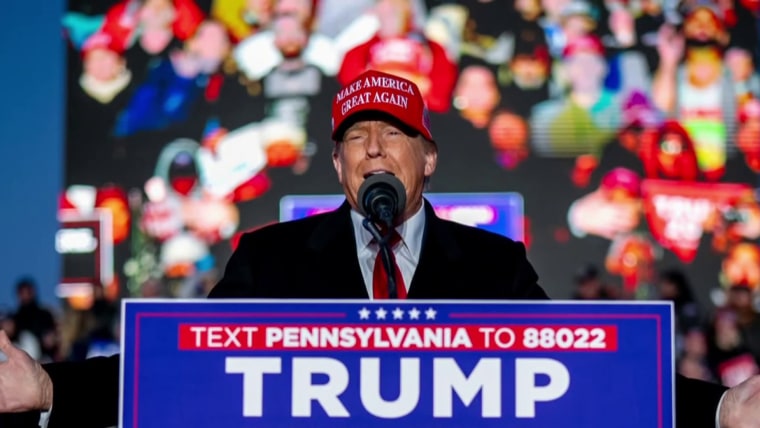

IE 11 is not supported. For an optimal experience visit our site on another browser.
-


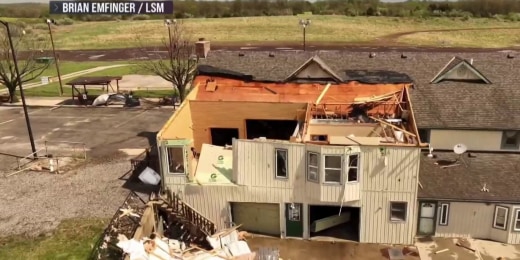
More than 20 tornadoes reported as tens of millions face severe weather threat
00:57
-



Shoe cobbler becomes unlikely TikTok star
01:48
-


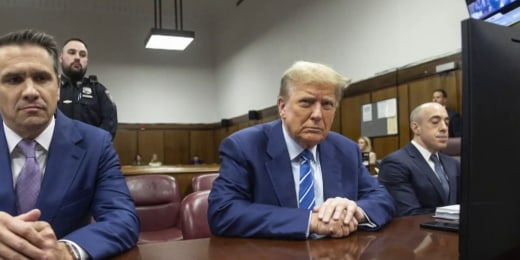
First jurors selected to serve in Trump hush money trial
03:07
-



Israel’s military vows response to Iranian attack
01:31
-


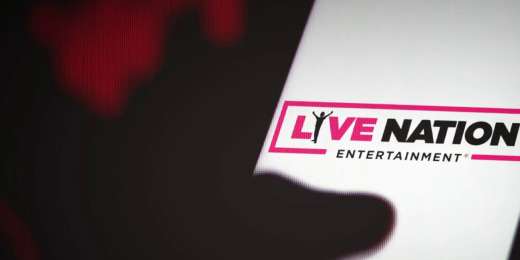
DOJ reportedly set to sue Live Nation in antitrust challenge
00:52
-



Boeing whistleblower says 787 Dreamliner has production flaw
03:25
-

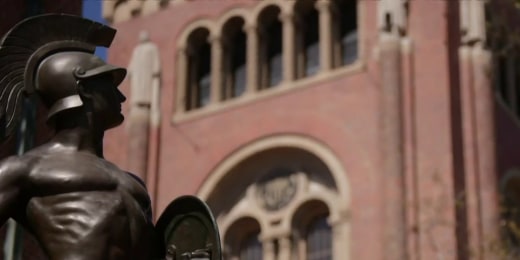
USC cancels commencement speech by class valedictorian
01:36
-

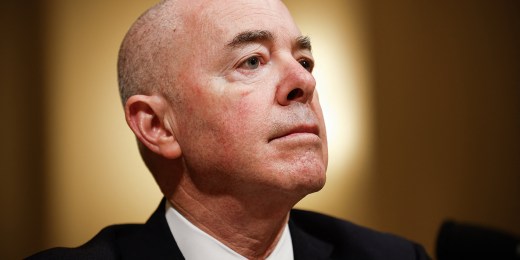
House delivers articles of impeachment against Mayorkas to Senate
01:49
-

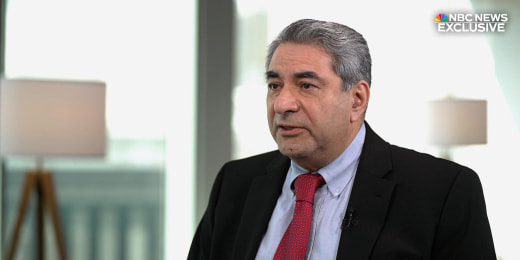
Boeing engineer says worldwide 787 fleet ‘needs attention’
00:20
-

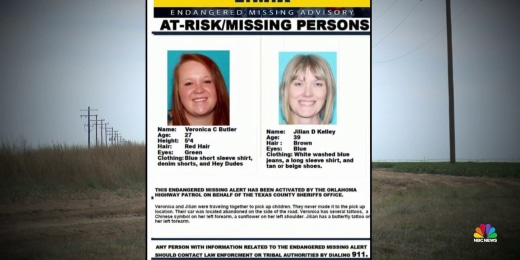
Two bodies found in Oklahoma are believed to be missing Kansas women
01:42
-


Video shows men damaging ancient rocks in national park
01:46
-


White House tries to prevent a wider war in the Mideast
02:01
-


Israel’s military vows military response after Iran attack
02:59
-

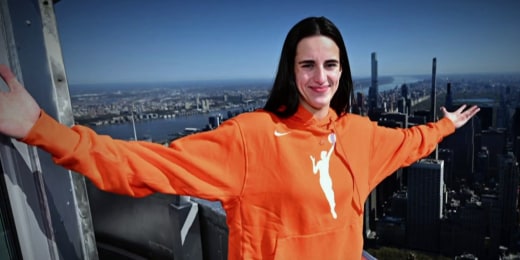
Caitlin Clark talks about her WNBA dream
01:52
-
Now Playing


Trump faces political risks as trial begins
00:53
-
UP NEXT

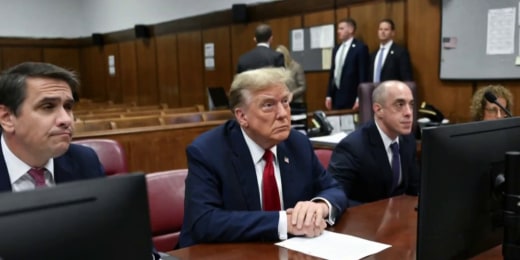
Jury selection begins in Trump’s hush money trial
02:54
-


Arrests made in connection to disappearance of two Kansas moms
01:30
-

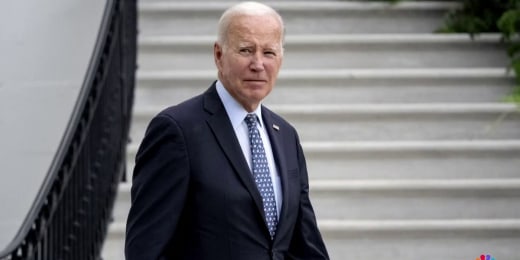
President Biden urges restraint after Iran’s attack on Israel
03:19
-
UP NEXT



More than 20 tornadoes reported as tens of millions face severe weather threat
00:57
-



Shoe cobbler becomes unlikely TikTok star
01:48
-



First jurors selected to serve in Trump hush money trial
03:07
-



Israel’s military vows response to Iranian attack
01:31
-



DOJ reportedly set to sue Live Nation in antitrust challenge
00:52
-



Boeing whistleblower says 787 Dreamliner has production flaw
03:25
Politics
Florida's Bob Graham dead at 87: A leader who looked beyond politics, served ordinary folks – Toronto Star
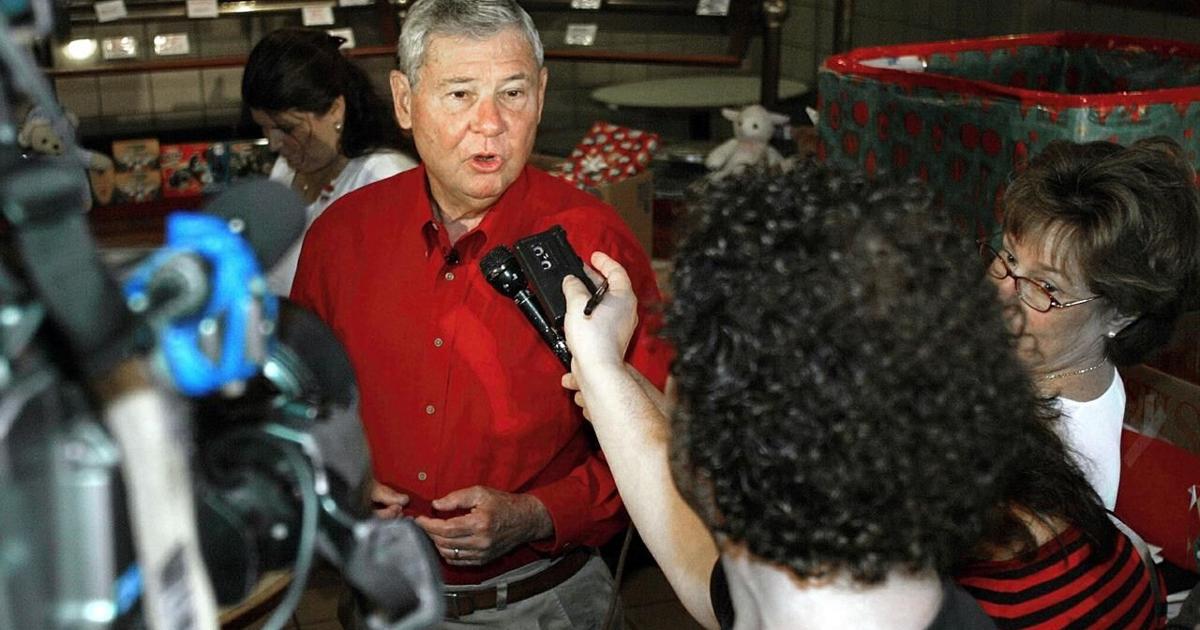

/* OOVVUU Targeting */
const path = ‘/news/world/united-states’;
const siteName = ‘thestar.com’;
let domain = ‘thestar.com’;
if (siteName === ‘thestar.com’)
domain = ‘thestar.com’;
else if (siteName === ‘niagarafallsreview.ca’)
domain = ‘niagara_falls_review’;
else if (siteName === ‘stcatharinesstandard.ca’)
domain = ‘st_catharines_standard’;
else if (siteName === ‘thepeterboroughexaminer.com’)
domain = ‘the_peterborough_examiner’;
else if (siteName === ‘therecord.com’)
domain = ‘the_record’;
else if (siteName === ‘thespec.com’)
domain = ‘the_spec’;
else if (siteName === ‘wellandtribune.ca’)
domain = ‘welland_tribune’;
else if (siteName === ‘bramptonguardian.com’)
domain = ‘brampton_guardian’;
else if (siteName === ‘caledonenterprise.com’)
domain = ‘caledon_enterprise’;
else if (siteName === ‘cambridgetimes.ca’)
domain = ‘cambridge_times’;
else if (siteName === ‘durhamregion.com’)
domain = ‘durham_region’;
else if (siteName === ‘guelphmercury.com’)
domain = ‘guelph_mercury’;
else if (siteName === ‘insidehalton.com’)
domain = ‘inside_halton’;
else if (siteName === ‘insideottawavalley.com’)
domain = ‘inside_ottawa_valley’;
else if (siteName === ‘mississauga.com’)
domain = ‘mississauga’;
else if (siteName === ‘muskokaregion.com’)
domain = ‘muskoka_region’;
else if (siteName === ‘newhamburgindependent.ca’)
domain = ‘new_hamburg_independent’;
else if (siteName === ‘niagarathisweek.com’)
domain = ‘niagara_this_week’;
else if (siteName === ‘northbaynipissing.com’)
domain = ‘north_bay_nipissing’;
else if (siteName === ‘northumberlandnews.com’)
domain = ‘northumberland_news’;
else if (siteName === ‘orangeville.com’)
domain = ‘orangeville’;
else if (siteName === ‘ourwindsor.ca’)
domain = ‘our_windsor’;
else if (siteName === ‘parrysound.com’)
domain = ‘parrysound’;
else if (siteName === ‘simcoe.com’)
domain = ‘simcoe’;
else if (siteName === ‘theifp.ca’)
domain = ‘the_ifp’;
else if (siteName === ‘waterloochronicle.ca’)
domain = ‘waterloo_chronicle’;
else if (siteName === ‘yorkregion.com’)
domain = ‘york_region’;
let sectionTag = ”;
try
if (domain === ‘thestar.com’ && path.indexOf(‘wires/’) = 0)
sectionTag = ‘/business’;
else if (path.indexOf(‘/autos’) >= 0)
sectionTag = ‘/autos’;
else if (path.indexOf(‘/entertainment’) >= 0)
sectionTag = ‘/entertainment’;
else if (path.indexOf(‘/life’) >= 0)
sectionTag = ‘/life’;
else if (path.indexOf(‘/news’) >= 0)
sectionTag = ‘/news’;
else if (path.indexOf(‘/politics’) >= 0)
sectionTag = ‘/politics’;
else if (path.indexOf(‘/sports’) >= 0)
sectionTag = ‘/sports’;
else if (path.indexOf(‘/opinion’) >= 0)
sectionTag = ‘/opinion’;
} catch (ex)
const descriptionUrl = ‘window.location.href’;
const vid = ‘mediainfo.reference_id’;
const cmsId = ‘2665777’;
let url = `https://pubads.g.doubleclick.net/gampad/ads?iu=/58580620/$domain/video/oovvuu$sectionTag&description_url=$descriptionUrl&vid=$vid&cmsid=$cmsId&tfcd=0&npa=0&sz=640×480&ad_rule=0&gdfp_req=1&output=vast&unviewed_position_start=1&env=vp&impl=s&correlator=`;
url = url.split(‘ ‘).join(”);
window.oovvuuReplacementAdServerURL = url;
TALLAHASSEE, Fla. (AP) — A leader like Bob Graham would be a unicorn in the hyper-partisan politics of today.
The former Florida governor and U.S. senator wasn’t a slick, slogan-spouting politician. He didn’t have an us-against-them mentality. Sometimes, he even came across as more of a kind-hearted professor just trying to make the world a better place.
function buildUserSwitchAccountsForm()
var form = document.getElementById(‘user-local-logout-form-switch-accounts’);
if (form) return;
// build form with javascript since having a form element here breaks the payment modal.
var switchForm = document.createElement(‘form’);
switchForm.setAttribute(‘id’,’user-local-logout-form-switch-accounts’);
switchForm.setAttribute(‘method’,’post’);
switchForm.setAttribute(‘action’,’https://www.thestar.com/tncms/auth/logout/?return=https://www.thestar.com/users/login/?referer_url=https%3A%2F%2Fwww.thestar.com%2Fnews%2Fworld%2Funited-states%2Ffloridas-bob-graham-dead-at-87-a-leader-who-looked-beyond-politics-served-ordinary-folks%2Farticle_0920ca6f-2233-5d7e-b2c9-82330901a187.html’);
switchForm.setAttribute(‘style’,’display:none;’);
var refUrl = document.createElement(‘input’); //input element, text
refUrl.setAttribute(‘type’,’hidden’);
refUrl.setAttribute(‘name’,’referer_url’);
refUrl.setAttribute(‘value’,’https://www.thestar.com/news/world/united-states/floridas-bob-graham-dead-at-87-a-leader-who-looked-beyond-politics-served-ordinary-folks/article_0920ca6f-2233-5d7e-b2c9-82330901a187.html’);
var submit = document.createElement(‘input’);
submit.setAttribute(‘type’,’submit’);
submit.setAttribute(‘name’,’logout’);
submit.setAttribute(‘value’,’Logout’);
switchForm.appendChild(refUrl);
switchForm.appendChild(submit);
document.getElementsByTagName(‘body’)[0].appendChild(switchForm);
function handleUserSwitchAccounts()
window.sessionStorage.removeItem(‘bd-viafoura-oidc’); // clear viafoura JWT token
// logout user before sending them to login page via return url
document.getElementById(‘user-local-logout-form-switch-accounts’).submit();
return false;
buildUserSwitchAccountsForm();
console.log(‘=====> bRemoveLastParagraph: ‘,0);
Politics
The Earthquake Shaking BC Politics


|
|
Six months from now Kevin Falcon is going to be staggering toward a catastrophic defeat for the remnants of the BC Liberals.
But what that will mean for the province’s political future is still up in the air, with the uncertainty increased by two shocking polls that show the Conservatives far ahead of BC United and only a few percentage points behind the NDP.
BC United is already toast, done in by self-inflicted wounds and the arrival of John Rustad and the Conservative Party of BC.
Falcon’s party has stumbled since the decision to abandon the BC Liberal brand in favour of BC United. The change, promoted by Falcon and approved by party members, took place a year ago this week. It was an immediate disaster.
That was made much worse when Rustad relaunched the B.C. Conservatives after Falcon kicked him out of caucus for doubting the basic science of climate change.
Falcon’s party had fallen from 33 per cent support to 19 per cent, trailing the Conservatives at 25 per cent. (The NDP has 42 per cent support.) That’s despite his repeated assurances that voters would quickly become familiar with the BC United brand.
BC United is left with almost no safe seats in this election based on the current polling.
Take Abbotsford West, where Mike de Jong is quitting after 30 years in the legislature to seek a federal Conservative nomination. It’s been a BC Liberal/United stronghold. In 2020 de Jong captured 46 per cent of the votes to the New Democrats’ 37 per cent and the Conservatives’ nine per cent.
But that was when the Conservatives were at about eight per cent in the polls, not 25 per cent.
Double their vote in this October’s election at the expense of the Liberals — a cautious estimate — and the NDP wins.
United’s prospects are even worse in ridings that were close in the 2020 election, like Skeena. Ellis Ross took it for the BC Liberals in 2020 with 52 per cent of the vote to the NDP’s 45 per cent.
But there was no Conservative candidate. Rustad has committed to running a candidate in every riding and the NDP can count on an easy win in Skeena.
It’s the same story across the province. The Conservatives and BC United will split the centre-right vote, handing the NDP easy wins and a big majority. And BC United will be fighting to avoid being beaten by the Conservatives in the ridings that are in play.
United’s situation became even more dire last week. A Liaison Strategies poll found the NDP at 38 per cent support, Conservatives at 34 per cent, United at 16 per cent and Greens at 11 per cent. That’s similar to a March poll from Mainstreet Research.
If those polls are accurate, BC United could end up with no seats. Voters who don’t want an NDP government will consider strategic voting based on which party has a chance of winning in their ridings.
Based on the Liaison poll, that would be the Conservatives. That’s especially true outside Vancouver and Vancouver Island, where the poll shows the Conservatives at 39 per cent, the NDP at 30 per cent and United lagging at 19 per cent. (The caveat about the polls’ accuracy is important. Curtis Fric and Philippe J. Fournier offer a useful analysis of possible factors affecting the results on Substack.)
And contributors will also be making some hard choices about which party gets their money. Until now BC United was far ahead of the Conservatives, thanks to its strong fundraising structure and the perception that it was the front-runner on the right. That’s under threat.
The polls also mark a big change in the NDP’s situation. This election looked like a cakewalk, with a divided centre-right splitting the vote and a big majority almost guaranteed. Most polls this year gave the New Democrats at least a 17 per cent lead over the Conservatives.




-



 Sports21 hours ago
Sports21 hours agoTeam Canada’s Olympics looks designed by Lululemon
-
News22 hours ago
Richard Chevolleau Short Film “Marvelous Marvin” Set to go to Camera
-
Business20 hours ago
Firefighters battle wildfire near Edson, Alta., after natural gas line rupture – CBC.ca
-



 Tech13 hours ago
Tech13 hours agoiPhone 15 Pro Desperado Mafia model launched at over ₹6.5 lakh- All details about this luxury iPhone from Caviar – HT Tech
-



 Investment23 hours ago
Investment23 hours agoStephen Poloz will lead push to boost domestic investment by Canadian pension funds
-
Art23 hours ago
Richmond art exhibits travel back in time, explore legacies
-
News23 hours ago
Federal budget 2024: Some of the winners and losers
-



 Sports13 hours ago
Sports13 hours agoLululemon unveils Canada's official Olympic kit for the Paris games – National Post





